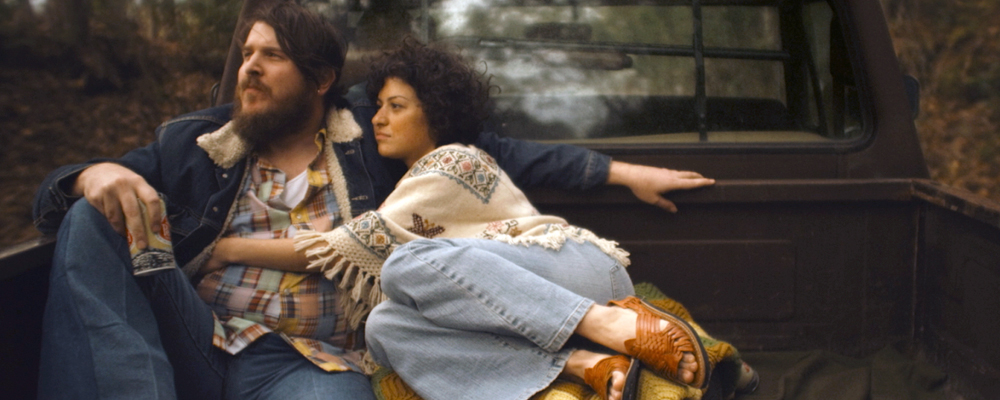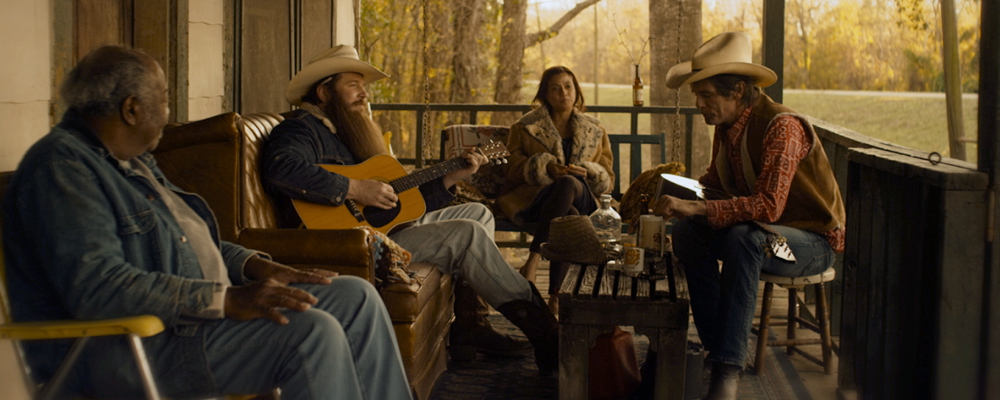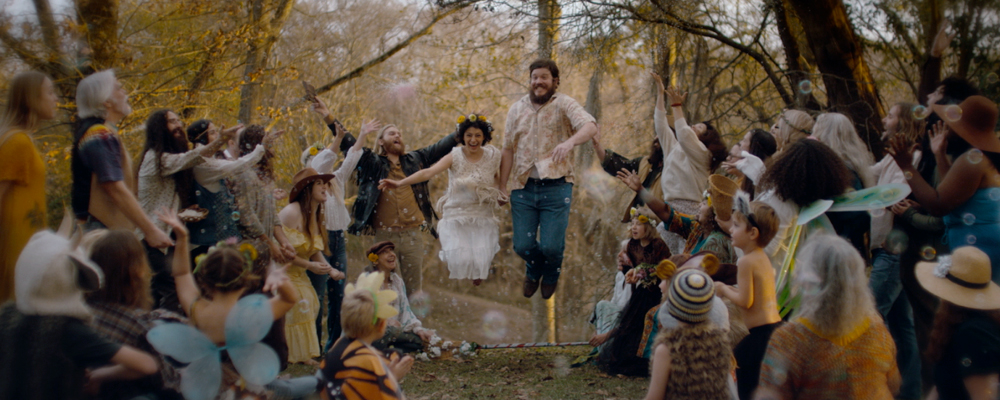Ethan Hawke’s Blaze Foley Biopic Recounts the Bittersweet Journey of the Outlaw Country Singer
Alci Rengifo
Some notable talents walk amongst the greats, but for whatever reason stumble and fall before receiving their proper admiration. Blaze Foley had a natural talent for writing songs of almost folk poetry, which he performed with a rugged yet quiet stage presence. Among his friends were country notables like Townes Van Zandt, and later artists like Lucinda Williams and Kings of Leon would record tributes to Foley. Legends like Willie Nelson and Merle Haggard knew him and were part of his clan, a movement called Texas Outlaw Music. Foley would meet his end in a moment of pure, unexpected tragedy, shot by a junky convinced he was going to steal his father’s welfare check. Ethan Hawke tells Foley’s story in “Blaze,” a meditative drama which takes its time to observe the artist as a tender heart with scars that ran too deep.
The film is told through a semi-narration by Van Zandt (Charlie Sexton), who during a radio interview recounts Foley’s story. Ben Dickey plays Foley, a San Antonio-based singer wandering Texas bars and night spots as a songwriter and performer with a unique presence. He sings in a deep, folky voice, sometimes talking more than singing, sharing tall tales and anecdotes. Foley lives in the woods, in a sort of cabin-shack hybrid, away from the noise of the city. In a small acting class Foley meets Sybil (Alia Shawkat), who can’t help but fall for his big smile and teddy bear demeanor, even if he’s a bit of a slob. She’s Jewish, which is a rarity in this place, and despite her parents’ hesitancy, marries Foley. With her encouragement he starts to be a little more serious about his own potential as a country artist. They move to Austin where he tries to leave a mark, but with such efforts comes an addiction to alcohol, a new pack of wild friends and a grappling with his past.
“Blaze” is Ethan Hawke’s third feature film as a director and it is his most confident, effective work yet. Its tone and sense of detail might owe something to indie director Richard Linklater, who has worked with Hawke in numerous, admired films such as the “Before Sunrise” trilogy and “Boyhood” (Linklater plays a small role here as a snaky record producer). Hawke displays the same attention to environment and character. His screenplay, written with Sybil and based on her book “Living in the Woods in a Tree: Remembering Blaze,” is a vivid creation without a standard plot. Like the films of Robert Altman, Hawke takes us into a specific corner of 1980s America and asks us to simply follow Foley as he lives, sings and suffers. Visually he achieves a modern western elegance here, full of stark realism but with a poetic, melancholy spirit. The deep woods where Foley and Sybil live feel like a rugged Eden, and it is not surprising that their friends are astounded that they would ever want to leave for Austin. Bars and nightclubs are lit like an American purgatory, as Foley sings in front of a large American flag, sometimes going into tangents. Hawke captures rural Texas with an immersive authenticity. Because he knows this world inside and out, he is adept at framing it as a culture and not a curiosity.
Foley was a modern-day outlaw of sorts, playing by his own rules and appearing to care little for fame or fortune. Hawke’s vision captures him as a big guy with a mix of tenderness and pain, ultimately sabotaging himself. The performance by Ben Dickey is one of the year’s best. He finds the nuances of a man who sings because he can’t do anything else, who writes songs because they simply flow out of him. But his upbringing and environments shaped how he would use his talents. There is a moment of subtle insight when Foley and Sybil visit his father, played by a nearly unrecognizable Kris Kristofferson, at a nursing home. Foley’s sister is there and reflects on how the man is now harmless, when years ago he was a frightening drunk. When she insists Foley also visit their mother she warns him to stop feeling so much hatred. Because Hawke never fully explains the root of such feelings, or resorts to cliché flashbacks, there is a haunting power to such moments. We meet people who make unwise choices or impulsive things to cover up scars, and we don’t always know exactly what the injury was.
There is good music inevitably in “Blaze,” but it is never showcased. Hawke lets the songs Foley performs at nightclubs and bars feel like extensions of his feelings, or inner thoughts that he needs to share with an audience. Because most of the movie follows Foley in his moments of loneliness, hitchhiking, crashing in motels, having random encounters with other women, songs like “If I Could Only Fly” take on a special kind of ache. Eventually even Sybil realizes this man is distancing himself from everyone, and she confesses she knows she is no longer his muse. His close friends like Van Zandt offer support, but are rowdy troubadours themselves. Foley even appears to crash and burn a potential record deal on purpose, fumbling through an important performance and drunkenly laughing off angry promoters. No amount of talent can completely heal a deeply-rooted depression.
Foley eventually stumbles into a tragic death but attempting to do a good deed. As the film puts it, he was trying to stop a junky who was beating on a friend of his (the junkie’s own father). By the end he seems in a daze. With “Blaze” Hawke has taken one of country’s underground misfits and turned him into a figure of pathos. His Blaze Foley is endearing, because everyone who stumbles can see a little bit of themselves in him.
“Blaze” opens Sept. 14 in New York and Los Angeles, with more dates to follow nationwide.



